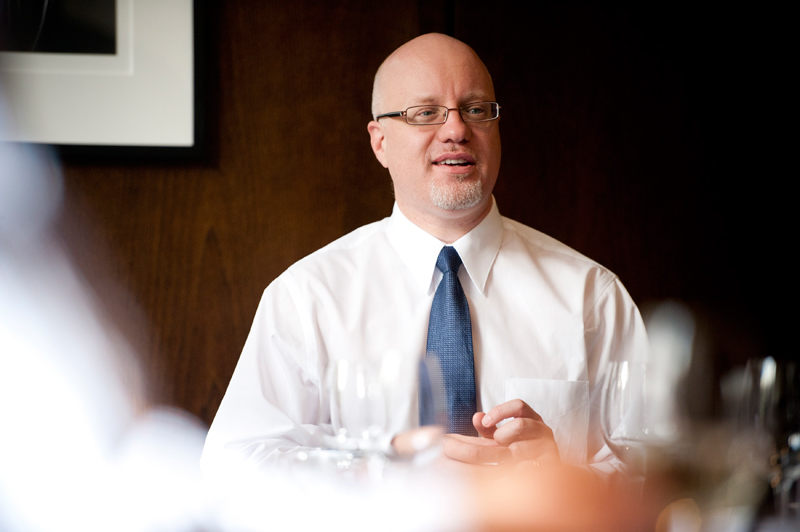SIBOS is the world’s largest financial service conference. It started in 1978 with just 300 participants, but in Singapore this year SIBOS expects more than 7,000 attendees from 140 countries around the world. Walking around the SIBOS conference exhibition floors you see all the world’s biggest banks UBS, RBS, HSBC, Citibank, Wells Fargo, ABN Amro, and then the host country's Singapore brands like UOB, OCBC Bank and DBS.
This morning, the first morning of the conference, however, all eyes and ears were on the session entitled New Kids on the Blockchain. An estimate 1,000 people were crammed into an area meant to house approximately 200 people at the opening Innotribe keynote this morning, as bankers scramble to understand the impact of blockchain’s distributed ledger technology that underpins cryptocurrencies like Bitcoin, and Ripple’s service. People queued for over an hour for the first session and the Innotribe overflow seating area ended up restricting seating out of fear that the improvised ampitheatre might collapse.
Simon Taylor, one of the instigators behind Barclay Bank’s recent adoption of the blockchain, and a number of projects protoyping uses of the blockchain, spoke about the reason Barclays is focusing on the technology
“The Blockchain could solve a whole host of issues, not least cost issues, and make life easier for Barclay’s clients. It’s our duty to aggressively understand the impact of this technology on the way the bank needs to work moving forward. If we don’t attack this innovation at the edges of the bank, then we can’t shape the control functions within the bank or help SME’s leverage off this new technology.”
Rumors at Innotribe suggested that Barclays is about to announce some major initiatives in NYC prototyping various blockchain applications.
Neal Cross, from Singapore's DBS Bank Innovation Lab also sat on the morning's blockchain panel and had an even more compelling vision of the technology's impact on banks
"The big thing for DBS is that blockchain technology has the potential to enable businesses to interact without a central authority, and what should attract banks is that it comes pre-tested in respect to scale and security as the underlying infrastructure of bitcoin. The potential to reduce risk, reduce complexity and improve the trade finance value chain is something that DBS is partnering with a number of other banks on. If banks aren't looking at leading technologies like blockchain, then they may not be able to survive the wave of disruption from the thousands of FinTech and technology companies coming their way."
Meanwhile across the floor of the exhibition space where the Innotribe session was being overwhelmed by attendees, Wells Fargo was showing off their latest banking technology - the Wells Fargo Stage Coach...
This well illustrates the forces acting on Wall Street and the banking industry globally today. Banking hasn’t really changed that much in the last 200 years, but today the forces that are impacting banking are better understood by technologists, programmers and user experience designers, than they are by bankers.
If the Innotribe event at SIBOS is any indication the best banks in the world in a decade will likely be technology companies, whether they have a bank charter or Wall Street office is optional.
This morning, the first morning of the conference, however, all eyes and ears were on the session entitled New Kids on the Blockchain. An estimate 1,000 people were crammed into an area meant to house approximately 200 people at the opening Innotribe keynote this morning, as bankers scramble to understand the impact of blockchain’s distributed ledger technology that underpins cryptocurrencies like Bitcoin, and Ripple’s service. People queued for over an hour for the first session and the Innotribe overflow seating area ended up restricting seating out of fear that the improvised ampitheatre might collapse.
Simon Taylor, one of the instigators behind Barclay Bank’s recent adoption of the blockchain, and a number of projects protoyping uses of the blockchain, spoke about the reason Barclays is focusing on the technology
“The Blockchain could solve a whole host of issues, not least cost issues, and make life easier for Barclay’s clients. It’s our duty to aggressively understand the impact of this technology on the way the bank needs to work moving forward. If we don’t attack this innovation at the edges of the bank, then we can’t shape the control functions within the bank or help SME’s leverage off this new technology.”
Rumors at Innotribe suggested that Barclays is about to announce some major initiatives in NYC prototyping various blockchain applications.
Neal Cross, from Singapore's DBS Bank Innovation Lab also sat on the morning's blockchain panel and had an even more compelling vision of the technology's impact on banks
"The big thing for DBS is that blockchain technology has the potential to enable businesses to interact without a central authority, and what should attract banks is that it comes pre-tested in respect to scale and security as the underlying infrastructure of bitcoin. The potential to reduce risk, reduce complexity and improve the trade finance value chain is something that DBS is partnering with a number of other banks on. If banks aren't looking at leading technologies like blockchain, then they may not be able to survive the wave of disruption from the thousands of FinTech and technology companies coming their way."
Meanwhile across the floor of the exhibition space where the Innotribe session was being overwhelmed by attendees, Wells Fargo was showing off their latest banking technology - the Wells Fargo Stage Coach...
This well illustrates the forces acting on Wall Street and the banking industry globally today. Banking hasn’t really changed that much in the last 200 years, but today the forces that are impacting banking are better understood by technologists, programmers and user experience designers, than they are by bankers.
If the Innotribe event at SIBOS is any indication the best banks in the world in a decade will likely be technology companies, whether they have a bank charter or Wall Street office is optional.
Brett King
Author, Speaker, Disruptor.
I’m a bestselling author and the founder of the world’s first direct mobile-only bank Movenbank.
www.banking4tomorrow.com
Author, Speaker, Disruptor.
I’m a bestselling author and the founder of the world’s first direct mobile-only bank Movenbank.
www.banking4tomorrow.com
Les médias du groupe Finyear
Lisez gratuitement :
Le quotidien Finyear :
- Finyear Quotidien
La newsletter quotidienne :
- Finyear Newsletter
Recevez chaque matin par mail la newsletter Finyear, une sélection quotidienne des meilleures infos et expertises de la finance d’entreprise et de la finance d'affaires.
Les 6 lettres mensuelles digitales :
- Le Directeur Financier
- Le Trésorier
- Le Credit Manager
- The FinTecher
- The Blockchainer
- Le Capital Investisseur
Le magazine trimestriel digital :
- Finyear Magazine
Un seul formulaire d'abonnement pour recevoir un avis de publication pour une ou plusieurs lettres
Le quotidien Finyear :
- Finyear Quotidien
La newsletter quotidienne :
- Finyear Newsletter
Recevez chaque matin par mail la newsletter Finyear, une sélection quotidienne des meilleures infos et expertises de la finance d’entreprise et de la finance d'affaires.
Les 6 lettres mensuelles digitales :
- Le Directeur Financier
- Le Trésorier
- Le Credit Manager
- The FinTecher
- The Blockchainer
- Le Capital Investisseur
Le magazine trimestriel digital :
- Finyear Magazine
Un seul formulaire d'abonnement pour recevoir un avis de publication pour une ou plusieurs lettres
Autres articles
-
Pomelo annonce une Série A à 35 millions de dollars menée par Vy Capital
-
Hong Kong : bientôt des premiers ETF Bitcoin ?
-
TMS Network (TMSN) Powers Up As Cryptocurrency Domain Appears Unstoppable. What Does This Mean For Dogecoin (DOGE) and Solana (SOL)?
-
The Growing Popularity of Crypto Payments: Could TMS Network (TMSN), Alchemy Pay (ACH), and Ripple (XRP) Lead The Way Despite The Whales?
-
DigiFT DEX Raises $10.5M in Pre-Series A Funding Led by Shanda Group
















